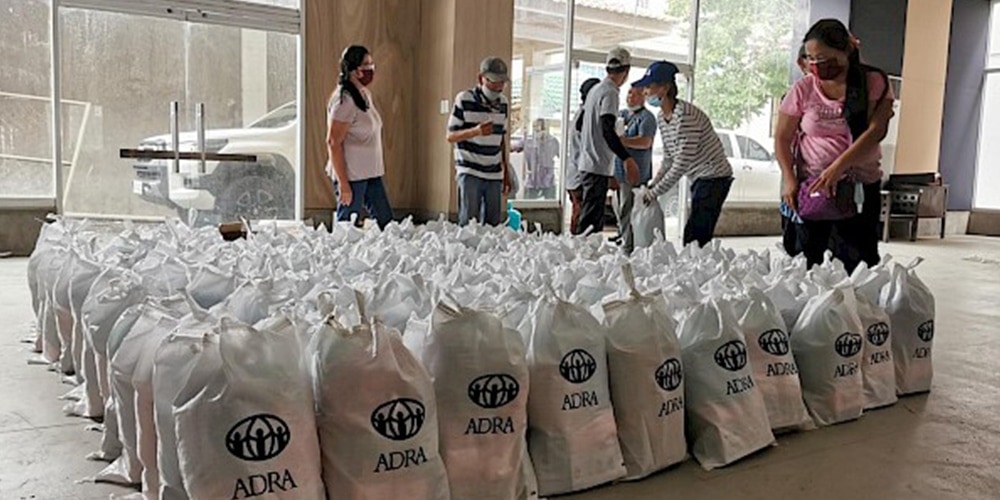
Since July 7, 2021, the Taal volcano in the Philippines has recorded more than 800 volcanic earthquakes, including volcanic tremor events, low-frequency volcanic earthquakes, and low-level background tremors. Among those developments, the Adventist Development and Relief Agency (ADRA) in the Philippines has been communicating with the Adventist Community Services (ACS) director of the South-Central Luzon Conference of the Seventh-day Adventist Church. Leaders shared assessment tools with the ACS director to allow an immediate needs assessment should the alert level be increased to 4 or should there be a destructive volcanic eruption.
“ADRA is preparing for a possible Taal eruption by constantly communicating with the local conference through its ACS director,” Edelene Eunice De Guia, planning and evaluation manager of ADRA Philippines, said. “We are sharing information and guidance on conducting assessment data collection following a disaster and planning an emergency response. ADRA also has visited the local government units that could be most affected by the eruption to initiate contact and establish coordination.”
ADRA Philippines’ Emergency Response Team in Cavite has conducted an initial assessment in the municipalities of Agoncillo and Laurel. The team is planning to implement an initial response to help protect the affected families from the adverse effects of the daily high levels of sulfur dioxide emissions and prevent COVID-19 transmission by providing N95 masks.
After successfully organizing assessments in affected communities situated near the Taal volcano, ADRA initiated distribution of relief goods on July 27 to help 600 families in the municipalities of Agoncillo and Laurel in Batangas.
The alert level for Taal volcano was heightened by the Philippine Institute of Volcanology and Seismology (PHIVOLCS) to Level 3 after the volcano released “a dark phreatomagmatic plume” early in July, displacing families situated west of the caldera.
ADRA delivered 300 family hygiene kits to the municipality of Laurel and another 300 to the municipality of Agoncillo to help families evacuated due to the recent volcanic activity. In each hygiene kit were N95 masks, anti-bacterial soap, shampoo, toothbrushes, toothpaste, sanitary napkins, a bar of laundry soap, and a towel.
“It is important to partner and coordinate with the local government units to ensure that accurate assessment data will be collected,” De Guia said. “Also, through proper coordination, duplication of assistance will be avoided, allowing the affected communities to receive the most appropriate aid that they need.”
Agoncillo was one of the worst-hit towns in last year’s eruption, where ADRA provided cash assistance for affected residents. This year, ADRA is providing hygiene kits to protect against the potential harm of ash from the volcano and help prevent the spread of COVID-19.
The original version of this story was posted by the Southern Asia-Pacific Division news site.